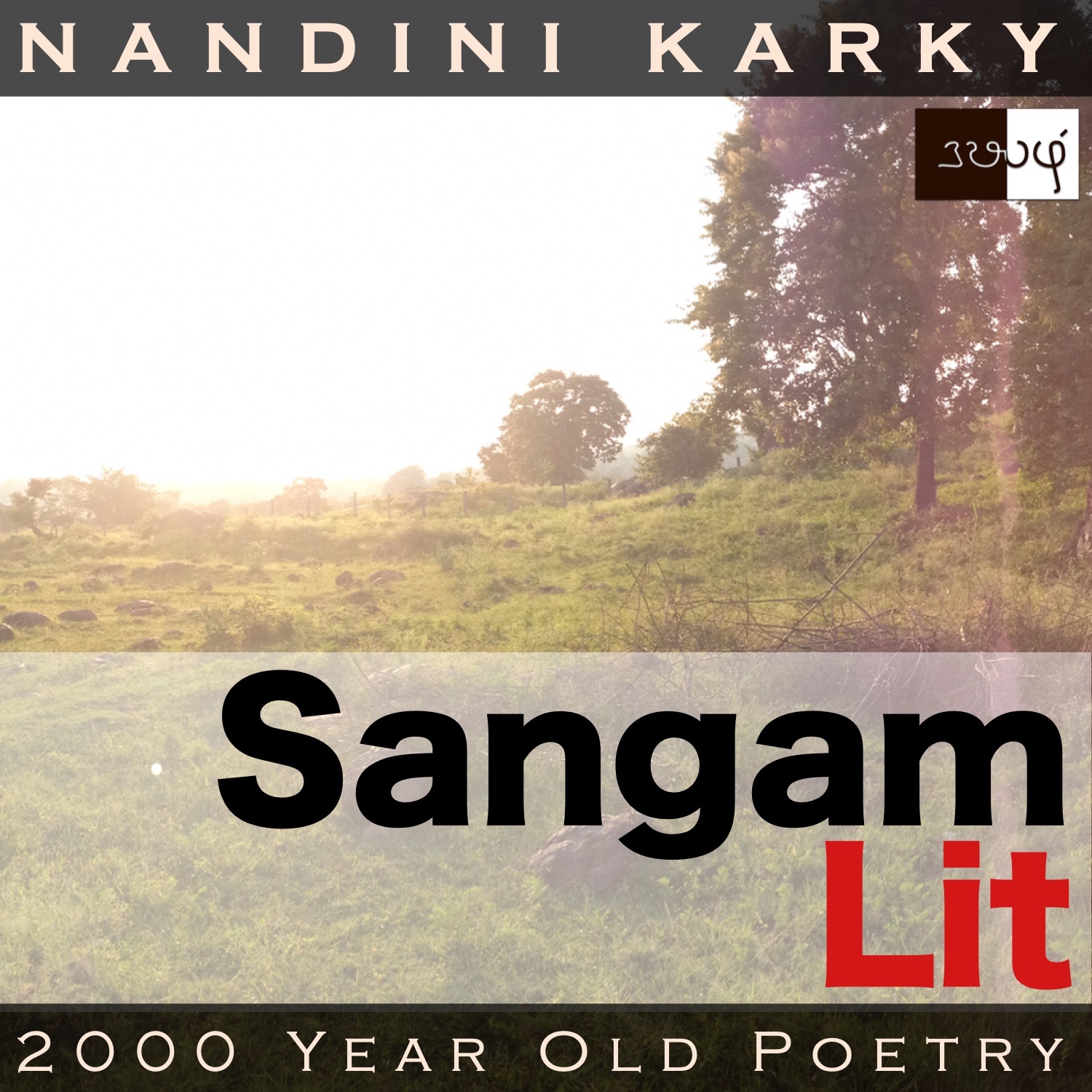Podcast: Play in new window | Download
Subscribe: Apple Podcasts | Spotify | Amazon Music | Android | iHeartRadio | TuneIn | RSS | More

In this episode, we take up a sensory travel to a sunset moment, as sketched by Sangam Literary work, Natrinai 187, penned by the Sangam-age namesake of an adored female poet, Avvaiyaar. The verse is set in the ‘Neythal’ landscape or coastal regions and speaks in the voice of the lady, as she mulls over the parting of the man, at the end of his tryst by day.
நெய்தல் கூம்ப, நிழல் குணக்கு ஒழுக,
கல் சேர் மண்டிலம் சிவந்து நிலம் தணிய,
பல் பூங் கானலும் அல்கின்றன்றே;
இன மணி ஒலிப்ப, பொழுது படப் பூட்டி,
மெய்ம் மலி காமத்து யாம் தொழுது ஒழிய,
தேரும் செல் புறம் மறையும்; ஊரொடு
யாங்கு ஆவதுகொல் தானே-தேம் பட
ஊது வண்டு இமிரும் கோதை மார்பின்,
மின் இவர் கொடும் பூண், கொண்கனொடு
இன் நகை மேவி, நாம் ஆடிய பொழிலே?
With the first two words ‘நெய்தல் கூம்ப’, the poem establishes the time of the day and sets it in the evening when a ‘blue lotus closes its buds’ and retires for the day. From time, we move to the mention of a direction in ‘குணக்கு’ or ‘east’. ‘கல் சேர் மண்டிலம்’ talks about a ‘sun down amidst the mountains’. ‘பொழுது பட’ and ‘தொழுது ஒழிய’ ring with the innate rhythm of the Tamil language. The phrases ‘கோதை மார்பு’ meaning ‘garlanded chest’ and ‘கொடும் பூண்’ meaning ‘curved jewel’ describe the adornments on the ‘கொண்கன்’ or ‘lord’. The verse ends touching upon the ‘பொழில்’ or the ‘grove’ that the lady seems to have relished in. After registering these striking images, let’s slow down to gather the full picture.
The man and lady have been in a love relationship and the man takes to trysting with her, by day, in a seaside grove. One day, suddenly noticing that the sun is about to set, the man takes leave of the lady, to depart to his town. As he parts away, the lady says to herself, “The blue lotus closes its buds; shadows sway to the east; the sun setting, amidst the mountains, turns red, cooling the land around; the many-flowered grove is covered with darkness too. Dusk descends and horses being tied make assorted bells resound. As I stand with my form filled with passion and bring my palms together in gratitude, the chariot hastens and vanishes to a dot; The lord wears radiant, curved jewels around his neck, and garlands on his chest, inviting those buzzing bees to swarm around, intent on gathering honey. With him, I have frolicked with ecstatic joy in this grove. Now, what will this grove and town mean to me?’ With these words, the lady expresses the angst in her heart as the man parts.
Now, time to deepen our experience through reflection. The lady paints a sensory portrait of the moment the man leaves. The first image she draws is that of a blue lotus, that had been basking in the sun, closing its buds. Hold this image for a little while. Then, she points to how the shadows seem to be pulled to the east, which hints to us that the maker of shadows, the sun happens to be setting in the west at the moment. The blushing on the sun’s cheeks then catches her attention and looking around, she finds the bright, flower-filled orchard shrouded in a blanket of gloom. After drenching us in these visuals and fragrances, she bids us to listen to the sounds around. Bells of many kinds tinkle and we learn that this is because of a horse being tied to a chariot hurriedly. The man, who had lost count of time, was now rushing to leave. As his chariot speeds by, the lady stands with her palms touching each other in a sign of greeting. Place the lady with folded hands on one side and recall the image of the blue lotus closing its buds on the other. Do you see how both evoke the same ecstatic beauty of having basked in the brightness of a passion and now seem to be in a moment of gratitude for what was?
The lady then describes the man as one wearing garlands that attract bees, intent on gathering honey and thus fills our taste buds with sweetness. When she talks about the curved jewel lying around the neck of the man, we feel the touch of metal on skin. And finally comes the question of how she can bear to be in that grove and town, that was bereft of the lord of her heart. Thus, in a exquisite description of a moment in time, the lady reveals how the parting away of the man fills both her inner world and outer world, in the shade of dusk. The bridge between the within and without is etched in our hearts by this poignant poem of yearning.




Share your thoughts...